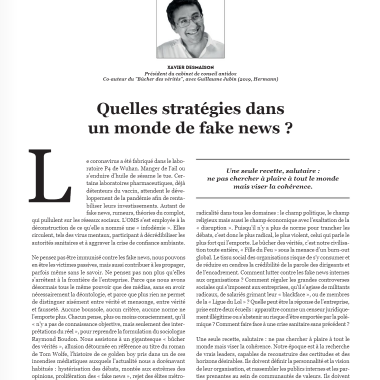The Paris 2024 Paralympic Games revealed a striking reality that goes far beyond mere sporting results: nations like Ukraine, 8th in the medal table despite being in the midst of a war, shone exceptionally brightly. Ukraine’s performances, like those of Brazil (5th), considered to be an emerging economy, and Great Britain, with its relatively small population, raise questions about the significance of these successes in a world where sport is often used as a geopolitical weapon. Are these achievements the markers of genuine inclusion for people with disabilities or do they serve soft power ambitions, as in the case of China?
Ukraine: resilience forged in adversity
Ukraine’s history at the Paralympic Games is a poignant testament to resilience and determination. Since the Athens Games in 2004, the country has regularly finished in the top 5, a remarkable achievement for a nation of less than 40 million people. This year, despite the conflict that has ravaged the country since 2022, Ukraine has maintained its position among the world’s Paralympic elite.
This success is rooted in a painful past: the Chernobyl disaster in 1986 left behind a generation scarred by radiation, with disabilities and malformations. Paradoxically, this tragedy was the catalyst for a proactive policy in favour of disabled sport following the country’s independence in 1991.
Valeriy Sushkevych, founder of the Ukrainian Paralympic Committee and himself a polio sufferer, was the architect of this transformation. He created a national network of specialised centres, offering young people with disabilities the chance to try their hand at a range of sporting disciplines. This system, hailed by the International Paralympic Committee as one of the best in the world, has not only trained elite athletes, but has also made the social inclusion of people with disabilities a fundamental pillar of the Ukrainian social project, a true area of redemption today for the victims of war.
Brazil: an unexpected Paralympic power
Brazil has succeeded in establishing itself as a major nation in the Paralympic world, despite often being perceived as a poor country with marked inequalities. With 255 para-athletes present in Paris, it climbed to fifth place in the overall rankings, well ahead of its more modest 20th place at the Olympic Games.
This success is the fruit of an ambitious sports policy, initiated in the mid-90s with the creation of the Brazilian Paralympic Committee. The decisive turning point was the organisation of the Games in Rio in 2016, which acted as a catalyst. The country invested massively in infrastructure and training, notably with the creation of the Paralympic Training Centre in São Paulo. Innovative funding (the Agnelo/Piva law), partly derived from national lottery revenues, has also played a crucial role, enabling athletes such as swimmer Gabriel Araujo to establish themselves as stars of the pool.
This success also reflects the country’s demographic and social characteristics, with almost 19 million people with disabilities, often from disadvantaged backgrounds. Disabled sport has thus become a tool for social promotion, even if, as the national secretary for the rights of disabled people points out, much remains to be done in terms of social inclusion.
China or the empire of soft power
China dominated these Paralympic Games with an impressive 220 medals, consolidating its status as a Paralympic superpower. This success is nothing new: since 2004, China has reigned supreme over Paralympic competitions. However, these results must be seen in the context of a well-defined political and geopolitical strategy. Far from being solely a sporting project, China’s Paralympic success is part of a soft power strategy, in which sport is used to increase the country’s international influence.
As early as 2001, when Beijing was chosen to host the 2008 Olympic and Paralympic Games, the Chinese government put in place an ambitious programme to develop Paralympic sport. In 2007, a huge preparation centre was built in the north of Beijing, covering an area of 23 hectares, with state-of-the-art facilities dedicated exclusively to Paralympic athletes. The aim was clear: not only to dominate the Games, but also to use Para sport as a lever for international influence.
However, this sporting success contrasts with the daily reality of disabled people in China. A 2013 Human Rights Watch report reveals that many disabled people remain marginalised, with no access to education or employment.
Great Britain: a model of continuity
The birthplace of the Paralympic Games, which were launched in 1948 to rehabilitate war veterans, the United Kingdom came second with 124 medals. The UK’s success is also the result of a strategic policy that identifies and supports sporting talent from an early age, combined with substantial investment, notably through the national lottery.
Unlike China, this success seems to be part of a sincere approach to the inclusion of disabled people, with a genuine effort to change perceptions and integrate these athletes into society.
A two-sided medal? The Paris 2024 Paralympic Games were a showcase of sporting excellence, but they also revealed deep divergences in the way countries use Paralympic sport. On the one hand, nations such as China and, to a lesser extent, Brazil see it as a soft power tool, a way of boosting their international image. On the other, countries like Ukraine and Great Britain are proving that sport can be a driving force for social inclusion and resilience.
The challenge for the future will be to ensure that Paralympic successes are not confined to the sporting arena, but that they translate into concrete advances in the inclusion of people with disabilities in all spheres of society.
By Bénédicte Couturier









